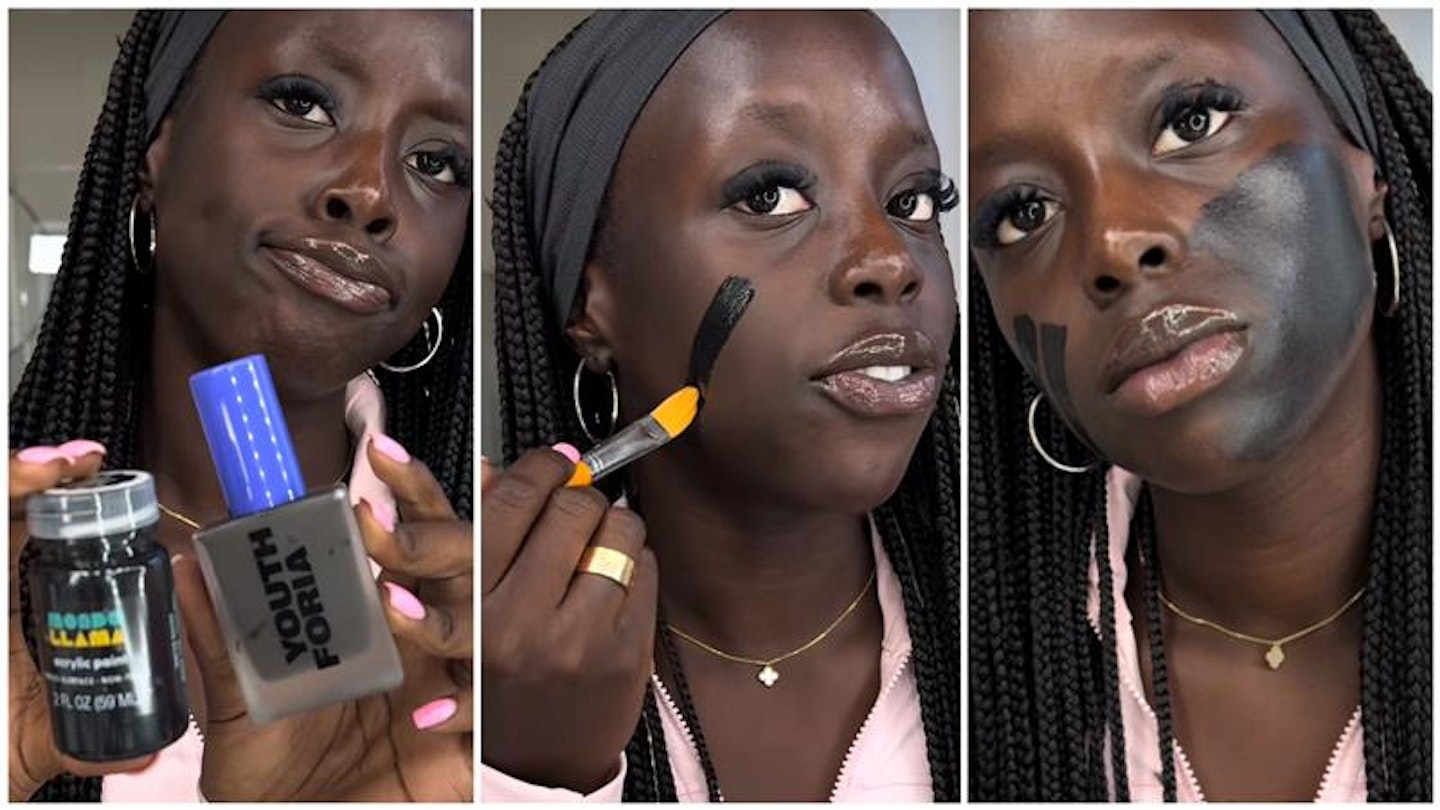It's May 2024, here's how not to create a successful beauty brand:
-
Offer limited shade ranges.
-
When consumers demand more, make the darkest shade pitch black.
Enter Youthforia. A skincare first makeup brand that has ticked both boxes. And, the internet is not happy about it.
Last August, Youthforia launched a skin-tint serum foundation, claiming it was 'safe enough to sleep in.' Ignoring the fact that sleeping in your makeup is never a good idea, the concept was met with a warm reaction from beauty lovers. Until it was revealed that the deepest shade available was only a medium golden brown. Shocked? So was I. It's 2024 and brands are still excluding an entire community.
In a, now-deleted,TikTok last October, Youthforia founder Fiona Co Chan responded to the backlash, stating her intention to extend the shade range before the launch. Co Chan claimed that she wanted to test the product with initial shades first. 'It was always my intention to launch this as a proof of concept to see if people even liked the base formula,' she explained. 'I thought if the project flopped, we'd have to start over.'
Fast forward to March 2024, and the brand finally responded to the outcry from the black beauty community by releasing ten deeper shades, the darkest being jet black. This is no exaggeration. No undertone, no dimension, nothing skin-like about it. In a viral TikTok video by beauty blogger Golloria George (@golloria), she demonstrated applying Youthforia's shade 600 foundation on her dark complexion, comparing it to actual 'jet black' face paint, with disturbingly similar results, to - in her words - 'tar in a bottle'.
Cosmetic chemist Javon Ford responding to George with an in-depth analysis of the foundation’s pigments. 'This foundation only has pure black pigment (black iron oxide), no other colourants', versus Youthoria's lighter shades that included three different pigments. 'Skin tones typically have some combination of eumelanin and pheomelanin,' he added. 'The pheomelanin is where we get the red and yellow undertones.'
He went on to explain that using a black pigment to create foundation is never advised as it makes the appearance of it 'grey and muddy'. I remember when I first dabbling into makeup and the darkest shades on the shelf would make me look sickly. Poor pigment. Ghostly undertones. I thought we had moved on. Apparently not.
The brand later released a message in a community chat with their ambassadors, addressing the confusion surrounding their darkest shade. They emphasised that Shade 600 was part of their expansion in March and was tested on two people in Dubai. However, the testing methods seem questionable. In the tests, the formula hardly touches the models' skin.
'Seeing some confusion on our TikTok from people who are suggesting that our darkest shade of foundation (Shade 600) is 'black face paint' and not meant for real people...Fiona worked super hard, calling in favours with all her manufacturers to get this created in 4 months instead of the regular 18 months.'
For me, this is nothing but an excuse. It's at odds for a brand owner that previously claimed to want to make a perfect formula before bringing extended shades to market to then release a product in record time before it's been fine-tuned.
Discussions on shade inclusivity have long been prevalent in the beauty industry. And, there are examples where the dial really has moved. Brands like Haus Labs, Fenty Beauty, and NARS set the standard for inclusive shade ranges.
However, Youthforia has missed the mark. Many have labeled the foundation launch as malicious compliance and deliberate exclusion. Whatever it was, the mask has dropped. Brands are still ticking boxes just to silence critics and there is still a long way to go before the beauty industry can call itself inclusive.
For me I also see right through the guise of the inclusivity quota. I'm tired of forced inclusivity within the beauty industry but, sadly, I can't say this is something that has completely shocked me. Beauty has long been an industry that has excluded Black women. This is simply a reflection of a historical pattern where Eurocentric beauty ideals have taken precedence. Despite some progress in the recent years, such as the Black-owned beauty brands and increased awareness of diversity issues, instances like these serve as a stark reminder of the deep-rooted biases that still permeate the industry.
Youthoria was asked to comment on opinions voiced in this article but at time of publication had yet to do so.
Renee Washington, Grazia's Digital Fashion and Beauty Assistant, lives online. With a penchant for wispy lashes and streetwear, she writes about the worlds of fashion and beauty from the viewpoint of the modern fashion girlie.
